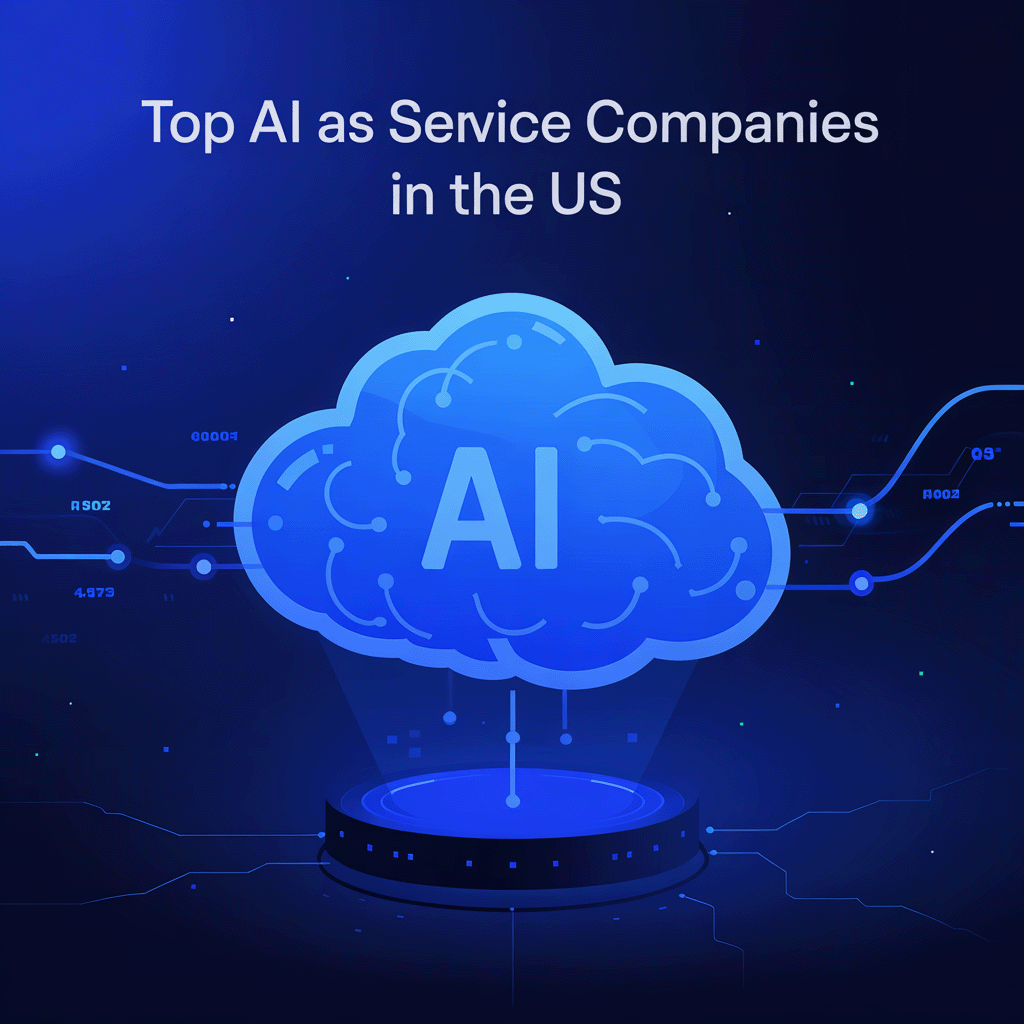Imagine a world where your company’s IT infrastructure isn’t confined to bulky servers in a dusty closet. Instead, it’s as elastic as a cloud formation, scaling up and down on demand to meet your ever-changing computing needs.
Leading companies have revolutionized their operations by embracing the cloud. Netflix, for instance, leverages the cloud’s elastic infrastructure to seamlessly stream content to millions of users globally, ensuring an exceptional user experience regardless of peak viewing times.
This is just one example of the transformative power of enterprise cloud computing. This guide delves into the core concepts of enterprise cloud computing, exploring its benefits and outlining various cloud solutions to empower your organization.

What is Enterprise Cloud computing?
Traditional IT infrastructure often relies on physical servers housed within a company’s data center. This on-premise approach can be cumbersome, with limitations in scalability and significant upfront costs for hardware and maintenance. Enterprise cloud computing offers a paradigm shift.
Enterprise cloud computing leverages a vast network of virtualized computing resources, including servers, storage, databases, and networking tools, all delivered on-demand over the internet. This eliminates the need for physical infrastructure and empowers businesses with a flexible and cost-effective approach to managing their IT needs.
Here’s a breakdown of the key aspects of enterprise cloud computing:
- On-demand resources: Cloud computing provides access to computing resources as needed, eliminating the need for upfront investments in hardware and software.
- Scalability: Cloud resources can be easily scaled up or down based on your business requirements, ensuring your IT infrastructure adapts to changing workloads.
- Pay-as-you-go model: You only pay for the resources you use, unlike traditional on-premise IT with its fixed costs. This translates to a more predictable and cost-effective IT budget.
- Managed services: Cloud providers often handle the ongoing maintenance and updates of the underlying infrastructure, freeing your IT team to focus on core business initiatives.
- Improved accessibility: Cloud-based applications and data can be accessed from anywhere with an internet connection, empowering a mobile workforce and fostering remote collaboration.
Enterprise cloud computing transforms your IT infrastructure from a rigid, on-premise setup into a dynamic and scalable cloud-based model, supporting business growth and innovation.

Why are Enterprises Moving to the Cloud?
The allure of enterprise cloud computing extends far beyond the captivating imagery of a virtual resource pool. Businesses across industries are actively migrating to the cloud for a multitude of compelling reasons:
- Enhanced Agility and Scalability: Gone are the days of wrestling with inflexible IT infrastructure. The cloud for business offers on-demand resources that can be scaled up or down in minutes to meet fluctuating business demands. This agility allows enterprises to respond swiftly to market opportunities and seize new growth prospects. Imagine launching a new marketing campaign or entering a new market – the cloud seamlessly scales your IT resources to accommodate the surge in activity.
- Reduced Costs: Enterprise cloud computing eliminates the need for significant upfront investments in hardware and software. Instead, you transition to a pay-as-you-go model, paying only for the resources you utilize. This translates to lower IT costs and frees up valuable capital for investments in core business initiatives. Additionally, cloud providers handle infrastructure maintenance and updates, further minimizing IT overhead.
- Improved Security and Reliability: Cloud providers invest heavily in robust security measures and redundant infrastructure, ensuring exceptional data security and uptime for your business’s cloud applications, unlike web apps with problems in this field. This translates to peace of mind knowing your data is protected and your critical applications are always available to users.
- Empowering a Mobile Workforce: Although the app development process can be challenging, the cloud facilitates a mobile work environment by enabling access to applications and data from anywhere with an internet connection. This fosters collaboration, improves productivity, and empowers your workforce to be more responsive to customer needs.
- Simplified Disaster Recovery: Cloud-based disaster recovery solutions streamline the process of recovering from unforeseen events like hardware failures or natural disasters. Data backups are securely stored in the cloud, ensuring business continuity and minimizing downtime in the event of an outage.
- Innovation and Access to Cutting-Edge Technologies: Cloud providers are constantly innovating and developing new technologies, such as artificial intelligence and machine learning. By adopting the cloud, enterprises gain access to these cutting-edge advancements without the burden of significant investments in infrastructure or expertise.
Enterprise cloud computing is a powerful value proposition for businesses. It unlocks agility, scalability, and cost-efficiency while providing access to cutting-edge technologies. This potent combination empowers organizations to thrive in the dynamic market, paving the way for unfettered growth and innovation. Migration to the cloud is a complex task; you can learn more about it in our article.
Types of Enterprise Cloud Architecture
The world of enterprise cloud computing isn’t a one-size-fits-all solution. Different deployment models cater to specific business needs and security considerations. Here’s a breakdown of the four main types of cloud architecture.
Public Cloud
Public cloud computing offers a readily available pool of virtualized computing resources, including servers, storage, databases, and networking tools. Delivered on-demand over the internet by cloud service providers (CSPs) like Amazon Web Services (AWS) or Microsoft Azure, public cloud business solutions are a compelling choice for businesses seeking agility, scalability, and cost-effectiveness.
Here’s a closer look at the key advantages of public cloud deployments:
| Advantages | Description |
| On-Demand Resources and Scalability | Public cloud resources are readily available and can be easily scaled up or down based on your fluctuating business needs. This elasticity ensures you only pay for the resources you use, eliminating the need for expensive upfront investments in hardware. |
| Cost-Effectiveness | The pay-as-you-go pricing model of public cloud translates to significant cost savings compared to traditional on-premise IT infrastructure. You eliminate the burden of hardware maintenance, software licensing, and ongoing infrastructure management. An effective cloud data management strategy ensures seamless organization, accessibility, and security of data in the cloud |
| Rapid Deployment and Innovation | Public cloud solutions enable rapid deployment of applications and infrastructure. This agility allows businesses to experiment, innovate, and launch new products and services at an accelerated pace. |
| Simplified IT Management | Cloud for business providers handles the heavy lifting of infrastructure maintenance and upgrades, freeing up your IT team to focus on core business priorities and strategic initiatives. |
| Improved Accessibility | Public cloud applications and data can be accessed from anywhere with an internet connection. |
However, public cloud solutions also come with some limitations to consider:
| Disadvantages | Description |
| Security Concerns | While security is a top priority for major cloud providers, some businesses might be concerned about entrusting sensitive data to a shared public infrastructure. |
| Limited Control | With a public cloud, you relinquish some control over the underlying infrastructure. This might concern organizations with strict compliance requirements or those seeking the utmost customization options. |
Private Cloud
Public cloud computing offers undeniable advantages, but what if your organization prioritizes utmost security and control over its data and infrastructure? Enter the private cloud, a dedicated computing environment built exclusively for your company’s needs.
Think of it as a secure, walled garden within the broader cloud landscape, offering unparalleled control and customization options.
For example, cloud computing in healthcare needs exceptional security because it usually involves a lot of sensitive data from many people.
Here’s why private clouds are a compelling choice for specific business scenarios:
| Advantages | Description |
| Enhanced Security | Private cloud environments provide the highest level of security for sensitive data. Since you have exclusive control over the infrastructure, you can implement robust security measures tailored to your specific needs and compliance requirements. |
| Unmatched Control | A private cloud gives you complete control over the underlying infrastructure, hardware, and software. This allows extensive customization and configuration to perfectly align with your unique business processes and applications. |
| Predictable Performance | Dedicated resources in a private cloud environment eliminate the potential for performance fluctuations experienced in shared public cloud environments. This translates to consistent and predictable performance for your critical business applications. |
| Regulatory Compliance | Private clouds offer a secure and compliant environment for businesses operating in heavily regulated industries to meet strict data privacy regulations. |
However, private cloud solutions also come with some drawbacks to consider:
| Disadvantages | Description |
| Higher Upfront Costs | Building and maintaining a dedicated private cloud infrastructure requires significant upfront investments in hardware, software, and qualified IT personnel. |
| Reduced Scalability | Scaling resources in a private cloud can be more complex and time-consuming compared to the on-demand scalability offered by public enterprise cloud solutions. |
| Management Burden | Your IT team is entirely responsible for infrastructure management and ongoing maintenance. This can be a significant burden, requiring skilled IT professionals to manage the private cloud environment effectively. |
Hybrid Cloud
Imagine a scenario where you can leverage the strengths of both public and private cloud environments. This is the essence of a hybrid cloud, a deployment model that strategically blends the security and control of a private cloud with the scalability and cost-effectiveness of a public cloud.
Think of it as a hybrid IT ecosystem, where your organization’s sensitive data and mission-critical applications reside in the secure confines of your private cloud. At the same time, non-critical workloads and processes seamlessly scale up and down in the public cloud based on demand.
Here’s why hybrid enterprise cloud solutions are gaining traction across industries:
| Advantages | Description |
| Optimizes Resource Allocation | A hybrid cloud empowers you to allocate resources and data strategically. Sensitive data and core applications can be secured within your private cloud, while public cloud resources handle fluctuating workloads and non-critical tasks, ensuring optimal cost-efficiency. |
| Enhanced Security and Compliance | By keeping sensitive data within your private cloud, you maintain the highest level of security and control. This is particularly advantageous for businesses operating in heavily regulated environments. |
| Unmatched Scalability and Agility | The public cloud component of a hybrid model provides on-demand scalability, allowing you to seamlessly scale resources up or down to meet changing business demands. |
| Flexibility and Choice | A hybrid cloud approach offers the flexibility to choose the best environment for each application or workload based on its specific needs. This adaptability caters to diverse business requirements and ensures optimal performance across your IT landscape. |
However, implementing a hybrid cloud strategy also presents some challenges:
| Disadvantages | Description |
| Increased Management Complexity | Managing a hybrid environment with both public and private cloud components can be more complex than managing a simpler deployment model. |
| Integration Challenges | Ensuring seamless integration and data flow between the public and private cloud environments can require careful planning and configuration. |
| Vendor Lock-In | Relying on multiple cloud providers for your hybrid solution can lead to vendor lock-in, potentially hindering your flexibility and increasing costs in the long run. |
Multi-cloud
The multi-cloud approach expands upon the concept of cloud diversification. In this model, organizations leverage multiple public cloud services from various providers, creating strategic data management. The multi-cloud architecture offers several advantages akin to the benefits of a well-diversified investment portfolio.
Here’s what makes multi-cloud a compelling option for some businesses:
| Advantages | Description |
| Increased Redundancy and Fault Tolerance | If a service disruption occurs with one provider, your critical operations can continue running smoothly on the others. |
| Improved Cost Optimization | Multi-cloud empowers you to leverage the competitive landscape. You can choose the most cost-effective provider for specific workloads, potentially negotiating better pricing terms by spreading your business across multiple vendors. |
| Access to Specialized Services | Different cloud providers excel in specific areas. A multi-cloud strategy allows you to tap into the unique strengths and specialized services offered by various providers, creating a best-of-breed cloud for business. |
| Vendor Lock-In Avoidance | By relying on multiple providers, you reduce dependence on a single vendor, preventing potential lock-in situations that could limit your flexibility and drive up costs in the long run. |
However, venturing into the multi-cloud domain also comes with its own set of challenges:
| Disadvantages | Description |
| Increased Management Complexity | Managing multiple cloud environments from different providers can be significantly more complex compared to simpler deployment models. |
| Security Considerations | Maintaining consistent security policies and data governance across multiple cloud environments requires careful planning and implementation. |
| Potential for Vendor-Specific APIs | Each cloud provider has its own set of APIs (application programming interfaces). Managing and integrating applications across these disparate APIs can complicate your development and deployment processes. |

Advantages and Disadvantages of Cloud Computing for Enterprise
Cloud computing offers a paradigm shift for businesses of all sizes, but weighing the potential benefits against any drawbacks before making the move is crucial. Here’s a breakdown of the key advantages and disadvantages of cloud computing for enterprises:
| Pros | Cons |
| Agility & Scalability | Management Complexity |
| Easily scale resources up or down to meet demand | Dependence on a single provider limits flexibility and can increase costs |
| Reduced Costs | Internet Dependency |
| The pay-as-you-go model eliminates upfront investments | Sharing data in the cloud requires careful selection of a secure provider |
| Improved Security & Reliability | Limited Control |
| Cloud providers invest heavily in security and redundancy | Less control over underlying infrastructure compared to on-premise IT |
| Empowered Mobile Workforce | |
| Access applications and data from anywhere with an internet connection | |
| Streamlined recovery from unforeseen events minimizes downtime | |
| Access to Cutting-Edge Technologies | |
| Leverage AI, machine learning, and other advancements without high investments |
Enterprise Cloud Solutions Examples
Cloud computing isn’t just a buzzword; it’s a powerful engine propelling businesses towards success across industries. Here are some captivating examples that showcase the transformative impact of cloud business solutions.
Pfizer
Time is critical in the race for life-saving medications. Pharmaceutical giant Pfizer utilizes the cloud to accelerate drug discovery and development. Cloud-based high-performance computing allows them to analyze massive datasets and conduct complex simulations at an unprecedented pace.
Airbus
Building airplanes requires meticulous collaboration between geographically dispersed engineering teams. Airbus, a leading aerospace manufacturer, leverages the cloud to facilitate seamless collaboration on complex aircraft design projects. Cloud-based design tools enable engineers across locations to work on the same 3D models simultaneously, fostering innovation and streamlining the design process.
Spotify
Imagine a music streaming service that curates playlists that perfectly match your taste. Spotify utilizes the power of cloud analytics to achieve this level of personalization. By analyzing vast amounts of user data stored in the cloud, Spotify recommends music tailored to individual listening preferences.
Dropbox
The ability to securely share and collaborate on files across teams is crucial for businesses of all sizes. Dropbox, a cloud storage pioneer, empowers users to store, access, and share files from anywhere with an internet connection.
Conclusion
Forget bulky servers and rigid IT infrastructure. The future of business is in the cloud, and it’s not just raining – it’s pouring opportunity. Embrace enterprise cloud computing and watch your organization transform. Agility, scalability, and innovation are the keys to unlocking growth in today’s digital age, and the cloud holds them all. Don’t be left behind – move to the cloud and watch your business take flight. If you’re looking for a reliable partner for cloud services, hit us up! We’d be happy to help.




